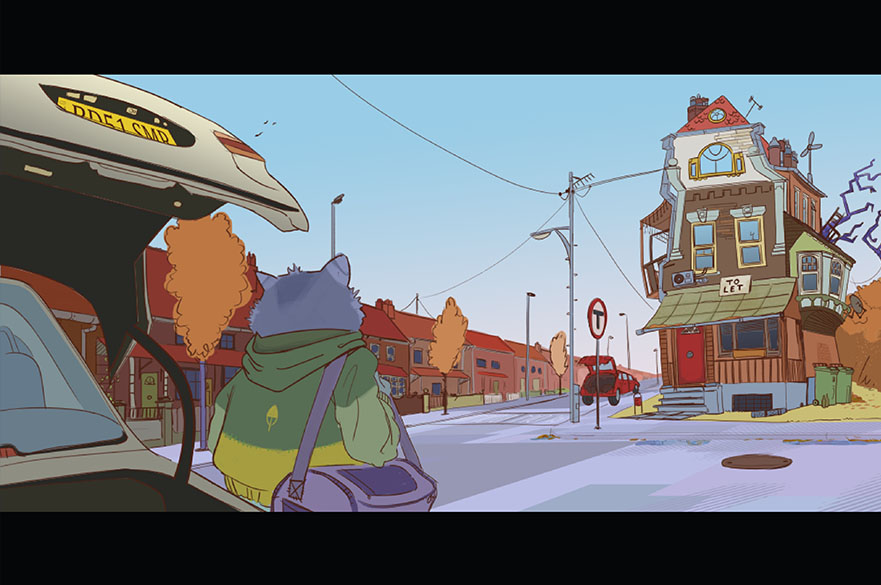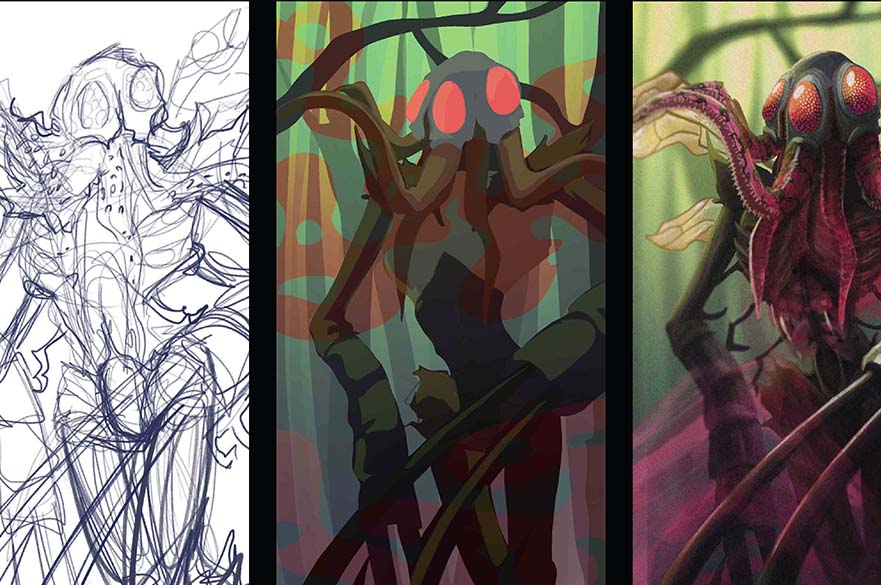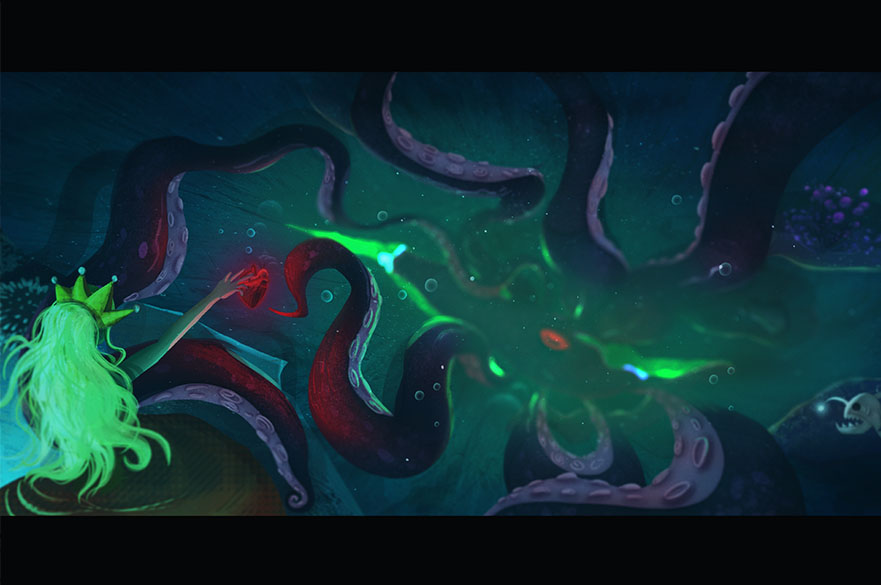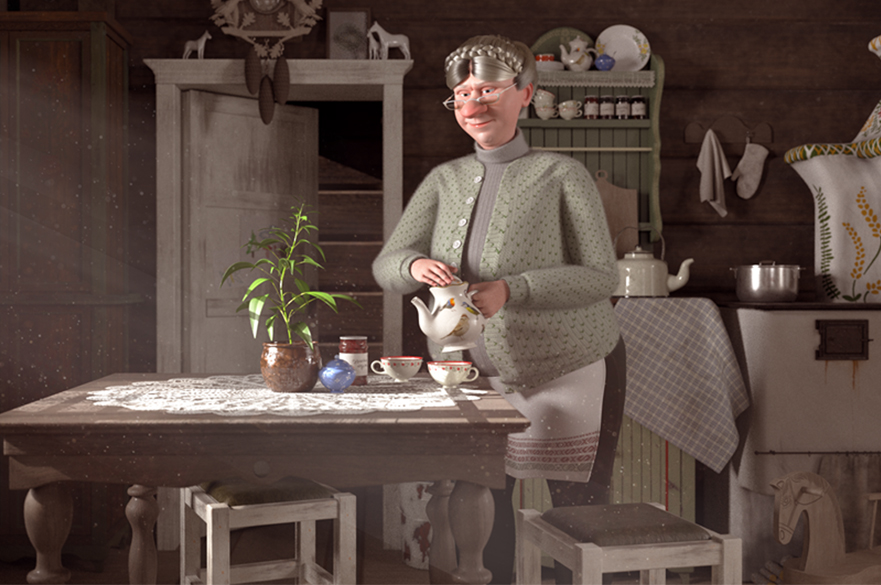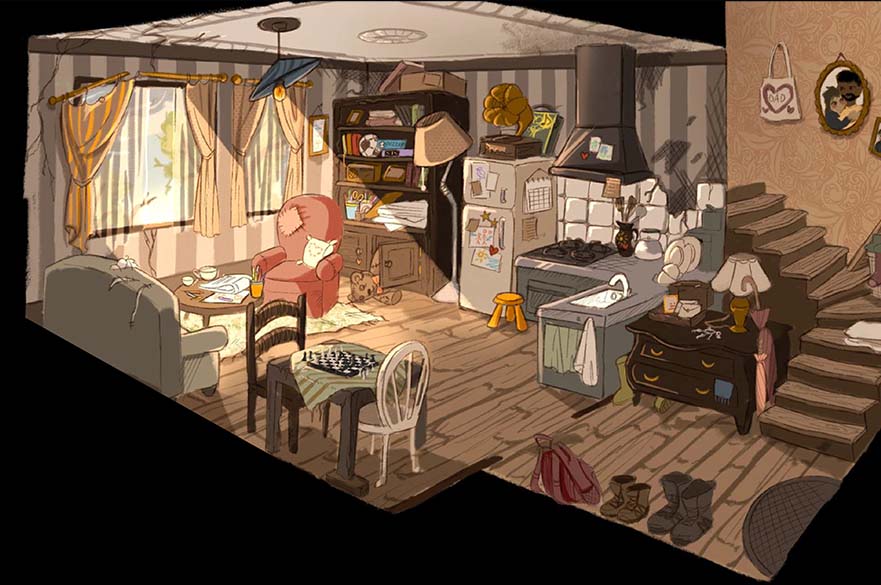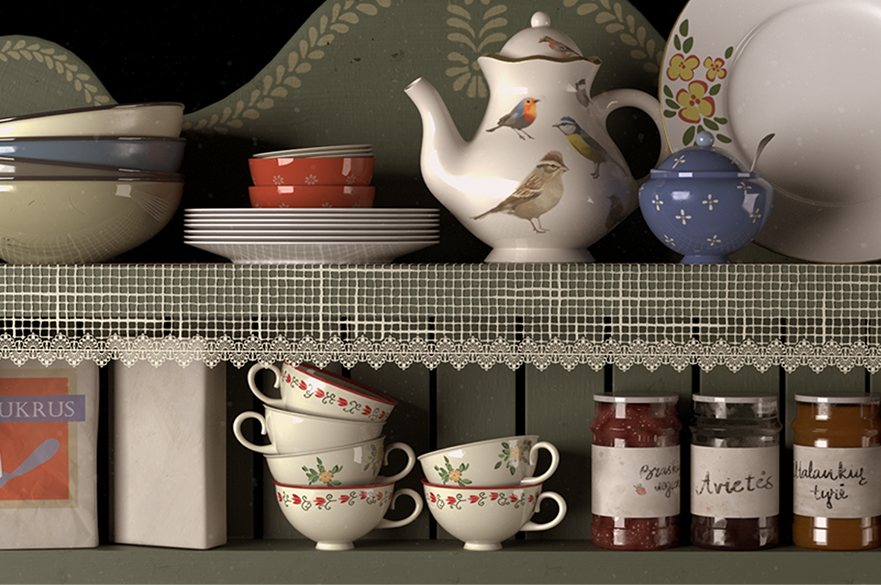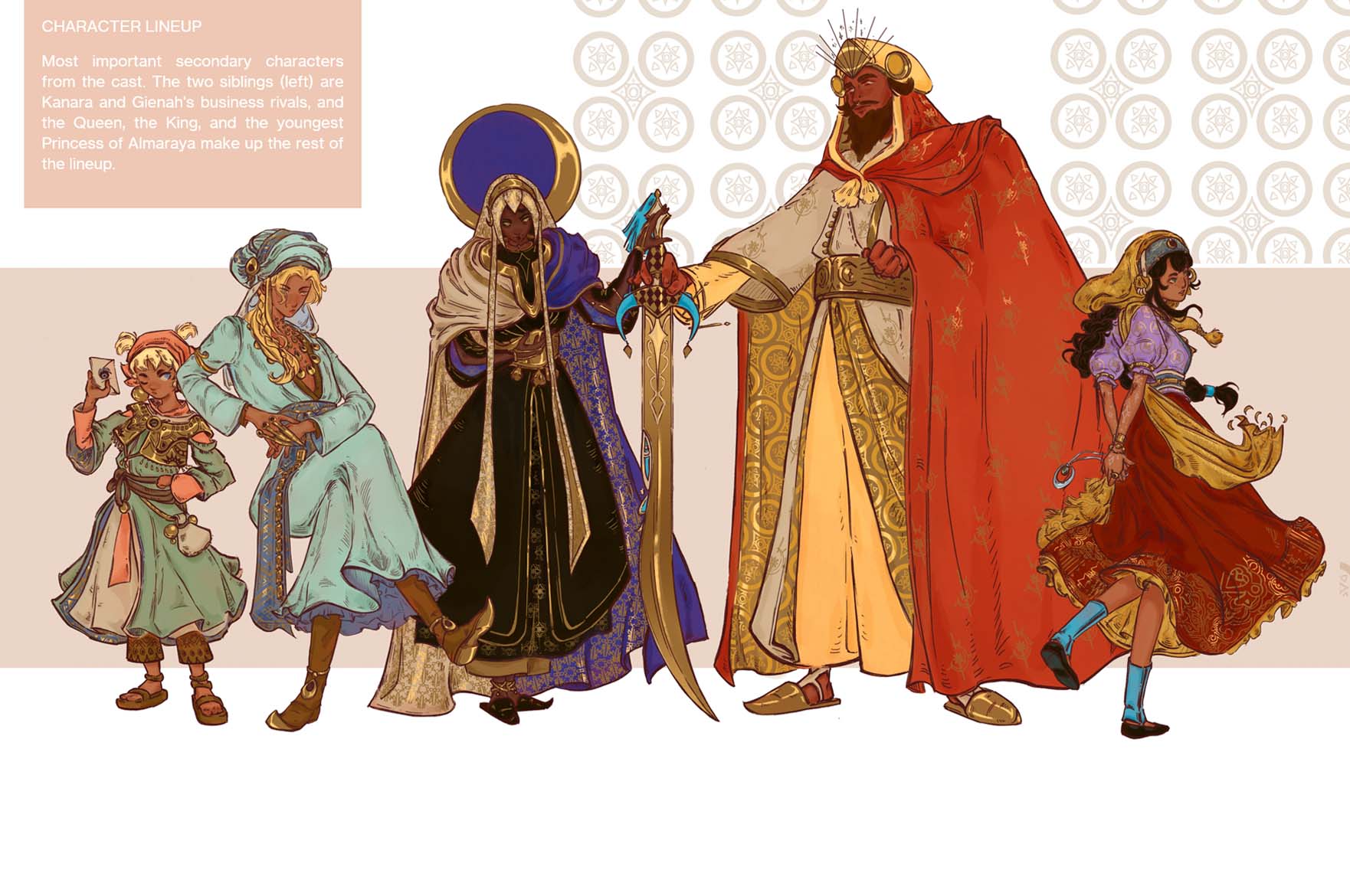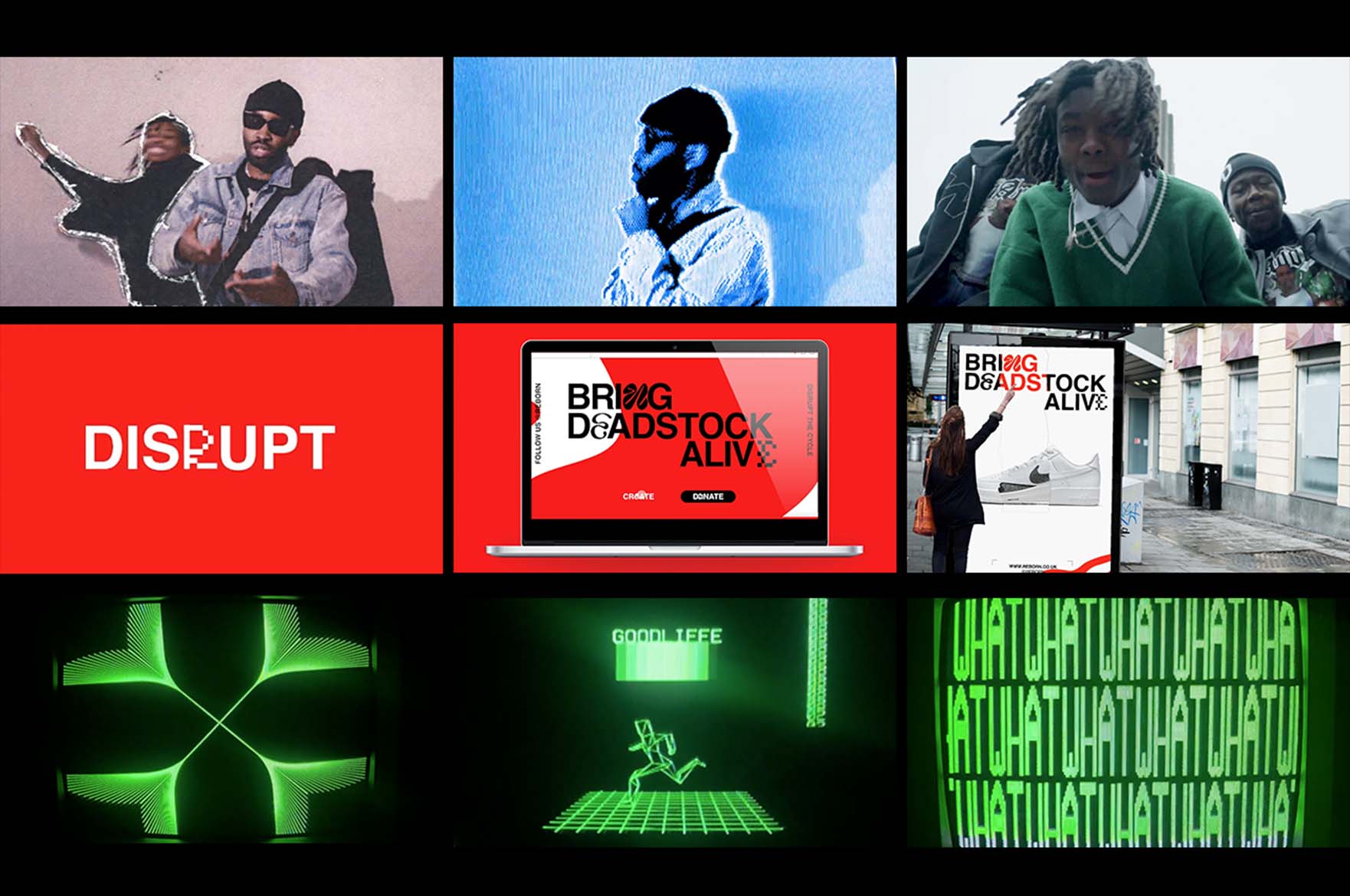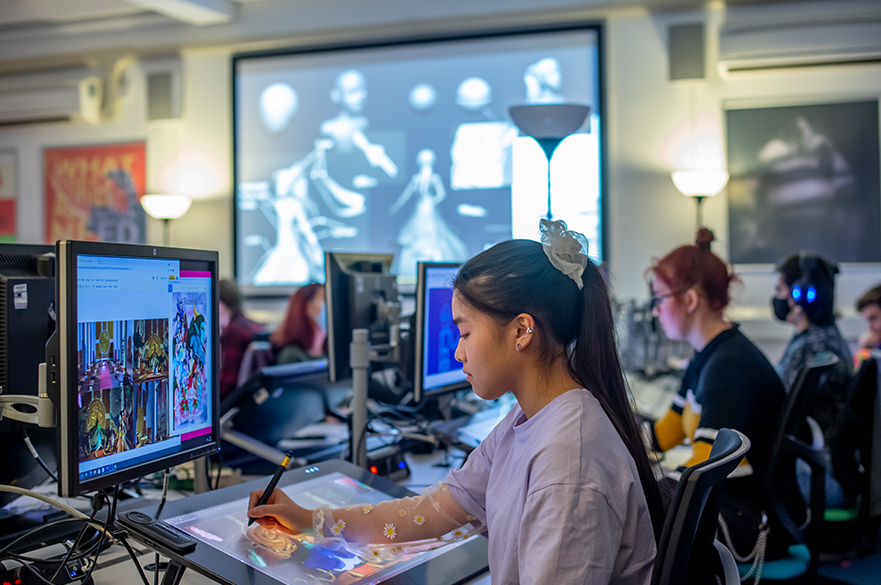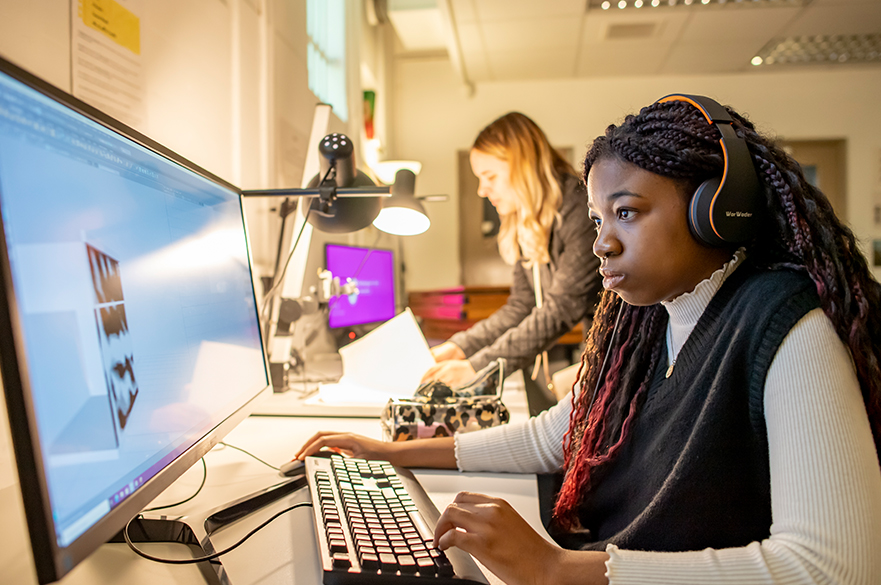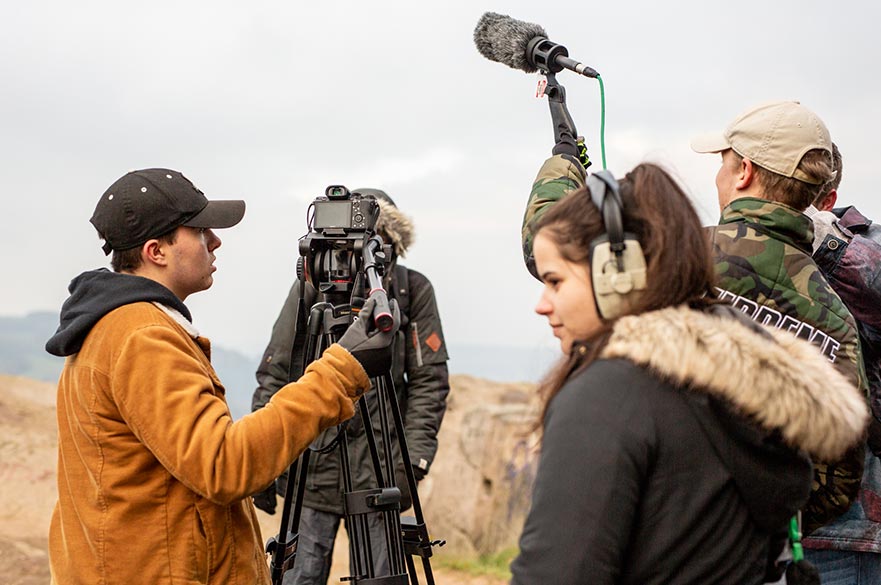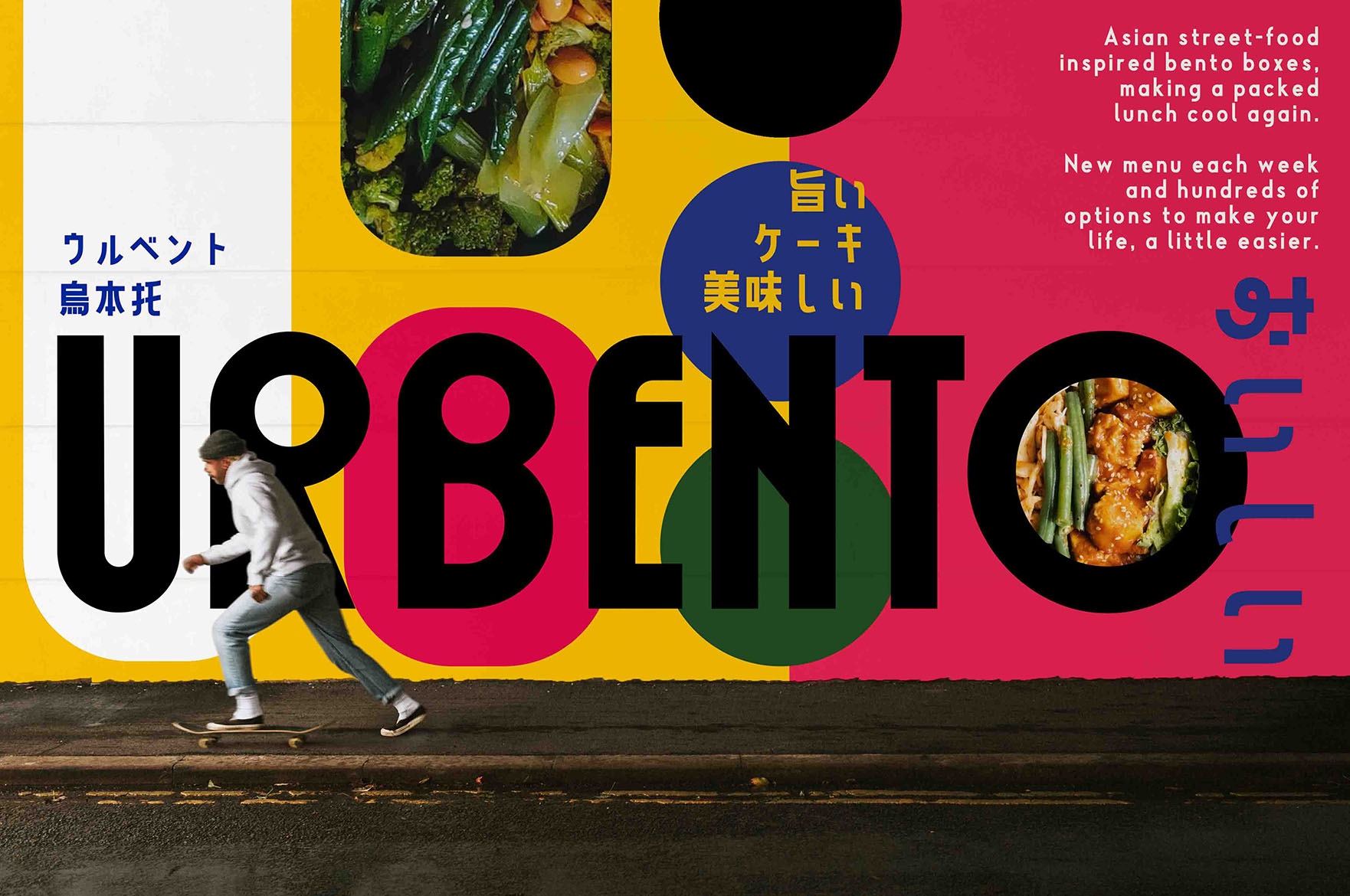Animation BA (Hons)
UCAS code: W213
About this course
The UK's animation industry is a global success, so there's never been a better time to start your career in this field.
As an ambitious storyteller and creative thinker, you’ll explore all aspects of 2D and 3D animation on this innovative degree course. We'll equip you with the critical and technical skills required to become an animator, engaging in every aspect of animation production while gaining knowledge of animation history and context.
The course provides a creative and disciplined environment to explore the visual and narrative aspects of this dynamic art form. Supported by the contextual study of animation, you’ll have the opportunity to express yourself as an animation artist in preparation for this vibrant, demanding and forever-changing creative field. You’ll explore the different areas of animation through studio practice, academic research, and independent study.
By the end of the course, you’ll have developed project work and films that build into a professional showreel tailored to your own career aspirations, ready to launch your career.
-
You’ll have the opportunity to complete a work experience placement of up to a year in length. Dependent on the duration of your placement, you could gain an additional Diploma or Certificate in Professional Practice.
-
Study the broadest range of disciplines from course staff with expertise in drawing for animation, storyboarding, 2D and 3D character animation, experimental animation, visual development, previs, lookdev, story development, production and direction.
-
Develop your professional skills through self-initiated work experience placements, industry competitions, collaborations with organisations and guest lectures.
-
During your time here, you will be given the opportunity to showcase your work to members of the creative industries. You may also be selected to showcase your work at international film festivals, such as the Annecy International Animated Film Festival.
20
What you’ll study
This course will give you the technical, intellectual, creative and professional skills you’ll need to work successfully within the industry both nationally and internationally. Beginning with the principles of animation, you will learn how to animate in digital 2D and 3D. You will study drawing for storyboarding and visual development in a progressive, systematic way. This includes character and environment design, 3D production workflow, acting for animators and all stages of animation production.
By the end of the course, you’ll have developed project work and films that build into a professional showreel tailored to your own career aspirations, ready to launch your career.
Principles of Animation
(40 credit points)
Learn the core concepts and foundational skills of animation through studio-based seminars, tutorials and self-directed research. Stimulate your intellectual curiosity and begin to develop your own creative identity through hands-on investigative exercises, to prepare you for animation production.
Animation and VFX Studies
(20 credit points)
In this module, you will pursue an academic approach to understanding the historical and industrial context of Animation, VFX, cinematic language, internationalism, ESD, film theory, form theory (light, colour, realism & hyperrealism), and ethical and representational considerations in visual effects and animation production. By exploring these various topics in depth, you will gain a well-rounded understanding of the intricacies involved in the creation of visually stunning and thought-provoking animation and VFX productions.
Animation Workflow
(40 credit points)
Enhance your knowledge and ability to apply animation's fundamental concepts, principles, and skills in a studio setting. You will attend seminars, receive tutorials, and conduct personal research to foster your intellectual curiosity and nurture your distinct creative identity through brief, practical exercises. This will prepare you for the extended workflow of animation production. Ultimately, you will utilise these concepts to produce your first animated short film for the course.
Introducing 3D Digital Art
(20 credit points)
The main objective of this module is to teach you how to create digital models and develop lookdev skills. You will learn about polygonal modelling, surfacing, and lighting. In addition, there will be workshops focusing on life drawing to improve your understanding of the human form, reinforced by practical production research and traditional visual arts such as painting.
Animation Production
(40 credit points)
Take your skills and knowledge in Animation Studio to the next level. You will choose a specialist teaching and learning area in either 2D or 3D techniques and demonstrate your improved understanding and ability by creating a short animated film at the end of the module.
You will have the opportunity to improve your character animation skills by focusing on acting and performance using your preferred technique. This will be done through project briefs that emulate a professional studio environment and challenge your knowledge of visual language, narrative, evaluation, and problem-solving.
Animation Studio
(40 credit points)
Animation Studio will further your skills and knowledge from those acquired in Animation Principles. As the module progresses, you will have the opportunity to choose specialist teaching and learning in either 2D or 3D techniques. At the end of the module, you will have a body of work that evidences your engagement in, understanding of, and achievement using the concepts of animation studio practice.
You will have the opportunity to progress your character animation skills as part of acting and performance, using your chosen technique. You will work on client-led live briefs that simulate collaborative teamwork in a production environment. Additionally, you will apply your knowledge of visual language, narrative, evaluation and problem solving whilst completing your chosen projects.
CoLab: Research, Exploration and Risk-taking
(20 credit points)
Through active participation with team-based problem-solving, you will work together in mixed teams on a project where you will use your creative ideas to generate solutions to the challenge or brief. Your project will allow you to explore how creativity can make an impact in society, as you choose a theme of sustainability, social justice, enterprise and innovation or community. This collaborative learning experience will expose you to a range of new processes and approaches that will develop your creative thinking.
Optional module
You will also choose one optional 20-credit module from:
- Storyboarding
- Character Ideation
- Experimental Animation
- Telling Stories
- Motion Graphics
- Digital Matte Painting
- Performance for Motion Capture
- Open-source 3D Art
Optional Placement Year (Sandwich)*
We have an option for all of our students to undertake a placement year and allow you to decide whether this is right for you once you have completed years 1 and 2 of your course. This time spent working in industry provides our students with crucial work experience, which is highly prized and much sought after by employers upon graduation. If you are successful in securing a placement you will have the chance to gain an additional Certificate or Diploma in Professional Practice, dependent on duration.
The additional placement year incurs a fee. For international students considering the transfer to the 4-yr SW route it’s important to seek advice from the International Student Support team and the Home Office regarding any potential visa implications and costs. For UK students, advice should also be sought regarding SLC eligibility, if applicable.
* If you choose to take the sandwich route option, you will still need to apply for this course with the full-time UCAS code: W213
Animation Specialist Project
(60 credit points)
This specialist project lets you work independently or as a team to create substantial original work that showcases your skills, creating the core of your professional portfolio. You can either develop a short film or develop an industry-ready body of work in an animation specialisation. We encourage you to be original and reflect on your creative process to position yourself in the animation industry. In support of your practice, you will reflect upon and evaluate your creative process, looking towards positioning yourself within animation or associated industries.
Animation Futures
(20 credit points)
This module helps you evaluate your past learning and specialised direction so that you can concentrate on developing your skills for your final year and graduate successfully. The module is delivered in two blocks throughout the year. The first part will help you determine your direction, the mid-year point will track your progress, and the final part will focus on professional development workshops, employability support, and advice on creating a reel/portfolio.
Animation Pre-Production
(40 credit points)
Take your understanding of the animation pipeline to the next level. This will be your opportunity to establish the foundations for a substantial animated story. This will allow you to develop your own unique and innovative voice within the short animated film form. The emphasis is on creating authentic and original storytelling that truly captivates your audience. Additionally, you will be challenged to critically reflect and evaluate your creative process to position yourself within the animation or associated industries.
OR
Screen Arts Collaboration
(40 credit points)
This module offers students a half-year opportunity to work with other screen arts students to fully develop a group project with a negotiated outcome or with an industry partner.
We regularly review and update our course content based on student and employer feedback, ensuring that all of our courses remain current and relevant. This may result in changes to module content or module availability in future years.
Don’t just take our word for it, hear from our students themselves
Student Work
Video Gallery
How you're taught
Teaching and learning experiences will include:
- lectures and briefings
- studio workshops
- seminars
- tutorials
- peer and self-evaluations
- verbal and visual presentations
- teamwork
- live projects
- study trips
- personal development planning.
Collaboration across courses
This course offers our new innovative collaboration module. This gives you the opportunity to work collaboratively with your contemporaries from a range of different art and design subjects and beyond. You’ll be working alongside artists, designers, photographers, illustrators, animators, and filmmakers on daring and creative projects that prepare you for a rewarding career in your chosen industry. Your project will allow you to explore how creativity can make an impact in society, as you choose a theme of sustainability, social justice, enterprise and innovation or community.
Exchange opportunities
If you’re thinking about studying part of your degree abroad, the course has exchange agreements with a number of institutions around the world.
Exchanges take place in Year Two of the course. You’ll receive guidance from the University about where you can study, and help in completing your application and arranging your exchange.
Showcase
You will be given the opportunity to exhibit your work during your time at NTU to members of the creative industries. Visit our ‘We Are Creatives’ showcase to take a look at the work of this year's graduating students’.
You’ll also have the opportunity to be selected to exhibit your work at international film festivals, such as the Annecy International Animated Film Festival.
Further information
- You'll have access to industry-standard equipment and software such as Maya, TVPaint, CelAction2D, ZBrush and Adobe CC.
- NTU is in the UK’s Top 15 for Art & Design in the Complete University Guide 2023 (Ranked 15th).
Careers and employability
Employability is a key focus of this course, with modules including initiatives such as live projects and trips, and the opportunity to exhibit your work, which will help to raise your profile and enhance your future career.
This course will prepare you to work in the digital media field, in areas such as feature film animation, Visual Effects, children’s television, heritage interpretation, advertising, and games production.
Recent graduate destinations and roles include:
- Character Animator, Splash Damage
- Production Coordinator at Acamar Films
- 2D Effects Animator at Play n' GO
- Animator/Producer, Thongkham film, Bangkok
- 3D Motion Graphics Designer, BritAsia TV
- Animator, Cloth Cat Animation
- Layout Artist, Blink Industries, London
- 2D Animator, Dog Ears!
- 3D Animator, Random42 Scientific Communication
- Character Animator at Blue Zoo
- Background Painter at Lupus Films
- 2D Animator, Fourth Wall
- Motion Graphics Designer at Cubaka Studio.
You’ll also develop transferable skills for alternative careers in media, freelance design, illustration, motion graphics, teaching and academia.
Connecting with industry and work placement opportunities
Industry professionals will visit the course to guest lecture and share their experiences. Live projects and competitions will help you to gain real experience of the industry, make contacts, and build your portfolio and CV.
You’ll be encouraged to undertake short periods of work experience alongside your studies. You will normally complete these placements during holiday periods, but you will have the option of taking up to two weeks out of term time, which you can negotiate with your tutor.
In addition, you’ll also have the opportunity to complete a longer work experience or placement, with the chance to gain an additional Diploma or Certificate in Professional Practice, dependent on duration. Course tutors and our Employability team are on hand to support you in applying for placement and professional practice opportunities.
YouFirst – working with our Employability team
Studying a creative degree in a large university has many benefits, none more so than having access to a large employability team.
Our friendly, experienced careers consultants will work closely with you at every stage of your career planning, providing personal support and advice you won't find in a book or on the Internet. You can benefit from this at any time during your studies and for up to three years after completing your course.
Creative Industries Federation
We are members of the Creative Industries Federation (CIF), which means students in the Nottingham School of Art & Design have the opportunity to sign up to free student membership. Creative Industries Federation are an organisation that represents, champions and supports the UK’s creative industries and membership grants students exclusive access to their selection of resources and events to help advance your career and connect with industry.
What our students are doing now
Filmmaking and Animation graduates celebrated at the Royal Television Society Midlands Student Awards 2024
It was a stellar night for our screen-based courses earlier this week, as NTU Filmmaking and Animation graduates won multiple awards at the Royal Television Society’s (RTS) Midlands Student Awards 2024.
Specialist workshop with Jabari Cofer, Animation Lead at Sony Pictures Imageworks.
Campus and facilities
You’ll be based in our new Design & Digital Arts Building. Opening for 2024 admission, our new Design & Digital Arts Building will place Nottingham as a UK hub for film, television, animation, UX design, games design, graphic design and more.
You'll have access to industry-standard facilities which include a virtual production studio, an in-camera Visual Effects studio and a black box studio, as well as collaborative studio spaces, future technology suites and exhibition spaces.
Entry requirements
BA (Hons) Animation
- Standard offer: 112 UCAS Tariff points from up to four qualifications
- Contextual offer: 104 UCAS Tariff points from up to four qualifications
- GCSE English and Maths grade C / 4
Other requirements
Contextual offers
A lower offer may be made based on a range of factors, including your background (such as where you live and the school or college you attended), your experiences and individual circumstances (you may have been in care, for example). This is called a contextual offer and we get data from UCAS to make these decisions. NTU offers a student experience like no other and this approach helps us to find students who have the potential to succeed here but who may have faced barriers that make it more difficult to access university. Find out how we assess your application.
Other qualifications and experience
We may also consider credits achieved at other universities and your work/life experience through an assessment of prior learning. This may be for year one entry, or beyond the beginning of a course where applicable, for example, into year 2. Our Recognition of Prior Learning and Credit Transfer Policy outlines the process and options available for this route.
Meeting our entry requirements
Hundreds of qualifications in the UK have UCAS tariff points attached to specific grades, including A levels, BTECs, T Levels and many more. You can use your grades and points from up to four different qualifications to meet our criteria. Enter your predicted or achieved grades into our tariff calculator to find out how many points your qualifications are worth.
Getting in touch
If you need more help or information, get in touch through our enquiry form
BA (Hons) Animation
- 112 UCAS Tariff points from up to four qualifications
- GCSE English and Maths C / 4
Other requirements
International qualifications
We accept qualifications from all over the world – check yours here:
Undergraduate preparation courses (Foundation)
If you don’t yet meet our entry requirements, we offer Foundation courses through our partner Nottingham Trent International College (NTIC), based on our City Campus:
English language requirements
You can meet our language requirements by successfully completing our pre-sessional English course for an agreed length of time, or by submitting the required grade in one of our accepted English language tests, such as IELTS:
Advanced standing (starting your undergraduate degree in year 2 or 3
You may be able to start your undergraduate course in year 2 or 3 based on what you have studied before. This decision would be made in accordance with our Recognition of Prior Learning and Credit Transfer Policy.
Would you like some advice on your study plans?
Our international teams are highly experienced in answering queries from students all over the world. We also have members of staff based in Vietnam, China, India and Nigeria and work with a worldwide network of education counsellors.
- Complete this simple form to keep in touch with the International Office.
Fees and funding
Preparing for the financial side of student life is important, but there's no need to feel anxious and confused about it. We hope that our fees and funding pages will answer all your questions.
Getting in touch
For more advice and guidance, you can contact our Student Financial Support Service.
Tel: +44 (0)115 848 2494
What's included in the course fees?
The School will cover the costs of any mandatory study trips.
In your final year, the Nottingham School of Art & Design will provide infrastructure costs for the Showcase.
Additional costs
Print and copy costs
The University allocates an annual printing and copying allowance of £20 depending on the course you are studying. For more details about costs for additional print and copying required over and above the annual allowance please see the Printing, photocopying and scanning information on the Library website.
Material costs
Depending on the materials you choose to work with, you should budget around £100 per year (minimum) for production costs associated to your course, including things like your final year project.
Stationery and reading materials
Most study modules will recommend one or more core textbooks, which most students choose to purchase. Book costs vary between courses and further information is available in the University’s bookshop, Blackwell’s.
A good supply of these essential text books are available in the University libraries, which students can easily borrow or access on-line/directly whilst studying in the library. You should budget £100 per year (minimum) for stationery and reading materials.
Although this is not a requirement for entry on the course or for successful study, once you have joined the course, some students choose to buy a laptop. Costs for this can vary depending on the technique you want to work in and the subsequent computer specification. If you do wish to purchase a computer, we advise you to wait until the course starts so that you can take advice on the specs needed for the work you are doing. You should expect to pay between £800-£1,500.
As part of your studies, you’ll need to store large quantities of data and we recommend you budget £70 for a rugged 1TB portable hard drive.
Field trips
All essential field trip costs will be included in your course fees. There may also be an opportunity to take part in an optional field trip to a European destination that will be tailored to suit your course.
Placements
If you're undertaking a placement year, you'll need to budget for accommodation and any travel costs you may incur whilst on placement. Many of our placement students do earn a salary whilst on placement which can help to cover these living costs.
You will have the opportunity to gain an extra qualification – a Certificate in Professional Practice on the Full-Time route. Or you may decide to switch to the Sandwich route in your second year, which includes a one-year Placement. Whether pursuing the Full Time or the Sandwich route you will need to budget for accommodation, travel and living costs whilst on Placement.
Costs will vary depending on whether the Placement is paid or unpaid, local or global. If you are working overseas, you will need to factor in the cost of setting up a bank account and visa applications; some companies pay for the visa as part of the Placement offer.
You should also budget £500 for interview/assessment centres in preparation for your Placement year.
Preparing for the financial side of student life is important, but there's no need to feel anxious and confused about it. We hope that our fees and funding pages will answer all your questions.
You might be able to get a scholarship to help fund your studies. We award scholarships to those international students who can demonstrate excellent achievement, passion, and dedication to their studies.
Please take a look at our International students page for information about fees, scholarships for international students, visas and much more.
Getting in touch
For more advice and guidance, you can contact our Student Financial Support Service.
Tel: +44 (0)115 848 2494
What's included in the course fees?
The School will cover the costs of any mandatory study trips.
In your final year, the Nottingham School of Art & Design will provide infrastructure costs for the Showcase.
Additional costs
Print and copy costs
The University allocates an annual printing and copying allowance of £20 depending on the course you are studying. For more details about costs for additional print and copying required over and above the annual allowance please see the Printing, photocopying and scanning information on the Library website.
Material costs
Depending on the materials you choose to work with, you should budget around £100 per year (minimum) for production costs associated to your course, including things like your final year project.
Stationery and reading materials
Most study modules will recommend one or more core textbooks, which most students choose to purchase. Book costs vary between courses and further information is available in the University’s bookshop, Blackwell’s.
A good supply of these essential text books are available in the University libraries, which students can easily borrow or access on-line/directly whilst studying in the library. You should budget £100 per year (minimum) for stationery and reading materials.
Although this is not a requirement for entry on the course or for successful study, once you have joined the course, some students choose to buy a laptop. Costs for this can vary depending on the technique you want to work in and the subsequent computer specification. If you do wish to purchase a computer, we advise you to wait until the course starts so that you can take advice on the specs needed for the work you are doing. You should expect to pay between £800-£1,500.
As part of your studies, you’ll need to store large quantities of data and we recommend you budget £70 for a rugged 1TB portable hard drive.
Field trips
All essential field trip costs will be included in your course fees. There may also be an opportunity to take part in an optional field trip to a European destination that will be tailored to suit your course.
Placements
If you're undertaking a placement year, you'll need to budget for accommodation and any travel costs you may incur whilst on placement. Many of our placement students do earn a salary whilst on placement which can help to cover these living costs.
If you undertake work experience or a longer placement, you will have the chance to gain an additional Certificate or Diploma in Professional Practice, dependent on duration. The Diploma in Professional Practice incurs a fee for the additional placement year.
If you secure a placement for year 3, and transfer to the sandwich route then additional fees will apply and there will be implications for your visa status. It is critical to consult with the NTU International Student Support Team and the Home Office for updated visa regulations and requirements before making any changes to your course structure.
How to apply
Apply through UCAS.
We will ask you to provide a digital portfolio. Visit our webpage which has some advice on what to include to help make your portfolio stand out. After you have submitted your portfolio, we may also invite you to an online interview to help us make our final decision.
Optional Placement Year (Sandwich)*
Please be aware that all enrolments onto the Course will initially be for the full time 3-year route. There is however an opportunity for you to internally transfer to the 4-year SW route if you secure a placement. The placement would need to be confirmed and transfer agreed during your 2nd year to enable you to commence the placement in year 3. It is important that you seek advice regarding any funding and financial implications before making any changes to your course structure.
You can apply for this course through UCAS. If you are not applying to any other UK universities, you can apply directly to us on our NTU applicant portal.
Application advice
Apply early so that you have enough time to prepare – processing times for Student visas can vary, for example. After you've applied, we'll be sending you important emails throughout the application process – so check your emails regularly, including your junk mail folder.
Writing your personal statement
Be honest, thorough, and persuasive – we can only make a decision about your application based on what you tell us:
Your portfolio
If your initial application is successful, you may be asked to upload a portfolio of your work and you may also be asked to attend an interview.
Would you like some advice on your study plans?
Our international teams are highly experienced in answering queries from students all over the world. We also have members of staff based in Vietnam, China, India and Nigeria and work with a worldwide network of education counsellors.
- Complete this simple form to keep in touch with the International Office.
Optional Placement Year (Sandwich)*
Please be aware that you will need to apply for the three-year full-time course. There is however an opportunity for you to internally transfer to the 4-year SW route if you secure a placement. The placement would need to be confirmed and transfer agreed during your 2nd year to enable you to commence the placement in year 3. It is critical to consult with the NTU International Student Support Team and the Home Office for updated visa regulations and requirements before making any changes to your course structure.
